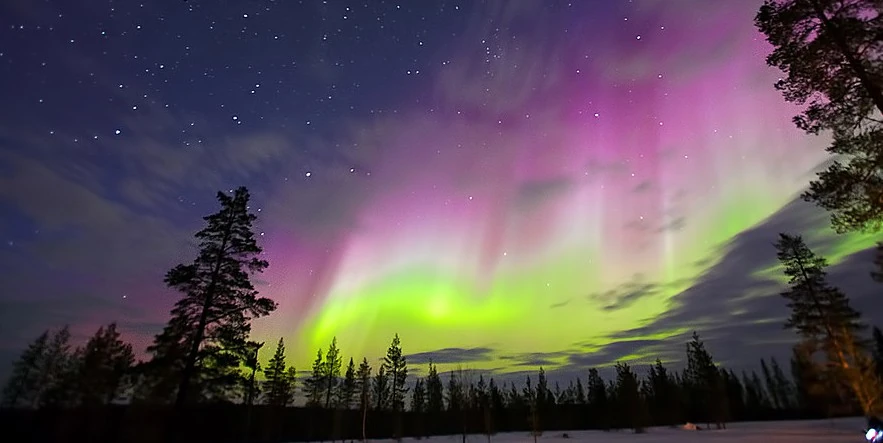Impacts of energetic particle precipitation (aurora borealis) on winter weather variations

A recent study by the University of Oulu, Finland, has revealed a significant connection between the aurora borealis, or Northern Lights, and variations in winter temperatures and electricity consumption in Finland, highlighting the role of energetic particle precipitation in affecting regional climate and energy demands.
The University of Oulu’s Space Climate Research Group has long been fascinated by the aurora borealis’ beauty and its broader implications.
Their research focuses on how this spectacular phenomenon influences chemical changes in the atmosphere, leading to ozone depletion in the polar stratosphere during winter. This depletion, in turn, affects the polar vortex—a powerful wind circulating around the polar region, which significantly impacts winter weather across northern Europe and, notably, Finland.
Associate Professor Timo Asikainen explains, “The breaking up of the polar vortex, often triggered by weak particle precipitation, allows cold Arctic air to plunge southward, leading to the cold spells Finland and Northern Europe experience.”
The research team’s models had already anticipated the likelihood of the polar vortex breaking up this winter, showing the predictive potential of their studies.
The Space Climate Group’s latest study, the first of its kind, demonstrates that energetic particle precipitation from space can explain up to 50% of the inter-annual variations in Finland’s winter electricity consumption. During the winter months of January through March, this variability accounted for about 14% of the average electricity consumption level in Finland.
Doctoral researcher Veera Juntunen highlighted the study’s groundbreaking findings, noting, “Strong particle precipitation correlates with higher winter temperatures and, consequently, lower electricity consumption in Finland, and vice versa.” This relationship was discerned through meticulous analysis of comprehensive electricity consumption statistics provided by the Finnish Energy Association, dating from the 1990s to the present.
The study also delved into the influence of the equatorial stratospheric Quasi-Biennial Oscillation (QBO) winds on this phenomenon. The significant effects of particle precipitation on the polar vortex and, subsequently, on Finland’s weather and energy consumption, are particularly pronounced during winters with easterly QBO winds. This is attributed to the way these winds facilitate the movement of large-scale atmospheric waves into the polar stratosphere, where they interact with particle precipitation to impact the polar vortex.
This research sheds light on a previously underappreciated aspect of space weather but also suggests that incorporating data on particle precipitation from space could significantly enhance the accuracy of winter temperature and electricity consumption forecasts in Finland.
As the scientific community advances in its ability to predict particle precipitation over longer timescales, this knowledge could prove invaluable for energy planning and climate adaptation strategies, potentially offering a lead time of several months or even years for preparing for Finland’s winter energy demands.
References:
1 The effects of the Aurora Borealis are reflected in Finland’s winter temperatures and electricity consumption – the polar vortex is breaking up again – University of Oulu – February 16, 2024
2 Electricity consumption in Finland influenced by climate effects of energetic particle precipitation – Juntunen, V., Asikainen T. – Sci Rep 13, 20546 (2023). https://doi.org/10.1038/s41598-023-47605-8 – OPEN ACCESS
3 Long-Term Prediction of Sudden Stratospheric Warmings With Geomagnetic and Solar Activity – Mikhail Vokhmyanin, Timo Asikainen, Antti Salminen, Kalevi Mursula – AGU/JGR Atmospheres – February 14, 2023 – https://doi.org/10.1029/2022JD037337 – OPEN ACCESS
Featured image credit: Dave Grubb

Commenting rules and guidelines
We value the thoughts and opinions of our readers and welcome healthy discussions on our website. In order to maintain a respectful and positive community, we ask that all commenters follow these rules.